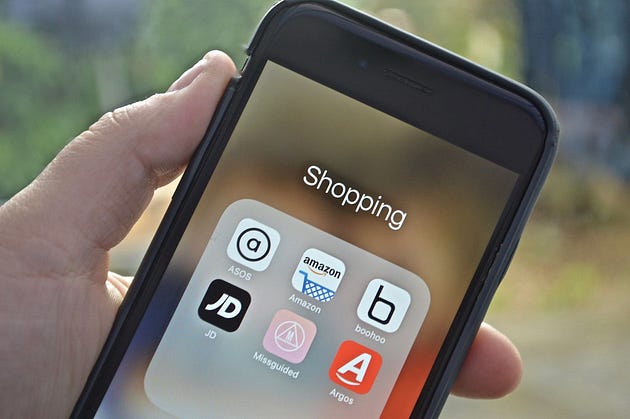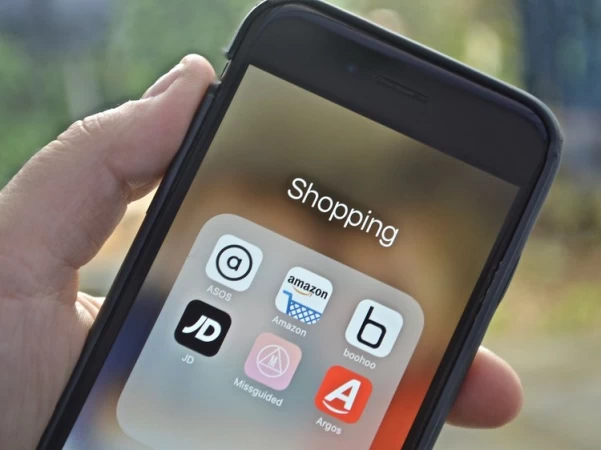Over the past decade, e-commerce websites have seen a huge rise. With the launch of mobile apps, however, they have seen even higher success. It’s not the only significant thing to build an app. It is more important to introduce fresh characteristics and ensure that they are up-to-date with recent technology. Mobile app development companies build applications more comfortable for users to utilize and can form a straight connection between business and consumers. As a result, more commitment allows for creating more reliable evidence.

Personalization is the primary reason applications perform better than websites. And retail applications are among the top 4 most commonly surfed applications on computers for clients. Also, 62 percent of smartphone owners used mobile apps mostly for purchases in the first half of 2019. As technology evolves, so does the user interfaces and user experience.
Why Mobile Apps are Important for E-commerce Business
Preferred Option
An assessment has been performed by ThinkWithGoogle. It shows that first, they conduct a fast search on their phones when customers want to shop for a product. And they would only approach a local shop after checking prices. It provides them with comfort and better shopping experience. They can compare brand sales and even review ratings and reviews. Therefore, it would not only create revenue to build a mobile app. It would assist e-commerce shops to clarify present market behavior and consumer behavior, leading to better market policies being developed.
Better Engagement
Mobile apps are highly tailored and ultimately deliver better customer loyalty. Brands can monitor browser history, purchase previous products, and make suggestions based on them. Apps operate on the conduct of consumers. Besides that, applications have a better understanding of navigation and are less clumsier than websites. They also store a history of transactions, addresses of shipping–making purchases simpler. Nearly 50 percent of traffic comes from mobile apps as no shock.
Customer Retention
Statistics have shown that if an app provides a poor first experience, it would leave nearly 34 percent of clients to another brand. If a consumer purchases an app from a brand, however; that implies that they are more interested in that brand. The reason behind this switch is that the customer believes that a better experience is provided by another brand. So many applications are downloaded but sit idle on the devices. Users who downloaded an app from a brand talk a lot about retention. They’re more likely than those who don’t register to use that app. Moreover, clients are browsing more on applications than on locations. While purchasing through an app, customers create bigger acquisitions.
Reduced Cart Abandonment
Cart abandonment can be called a company’s largest competitor. However, even before buying anything, an average of 70 percent of clients leave their shopping carts. Although there are individuals who would just browse and not be prepared to purchase products. Other reasons include high expenses of shipping/extra, account development, slow procedures, fewer choices for payment. Usually, all of these are called poor shopping experience. By developing an excellent mobile app design, these experiences can be readily enhanced. Optimizing checkout forms can assist reduce this rate by up to 20%
Secured and Simple
While shopping online, security may be the greatest problem for clients. Websites have lengthy processes of checkout and sometimes the transaction is decreased as well. This leaves many safety threats susceptible to clients. On the other side, mobile applications have a multi-layer safety scheme. Integration of third parties into the applications with Google Pay, Debit / Credit cards, Net Banking, and other e-wallets makes transactions much safer. Once you have completed the payment alternatives, checkouts become quicker without re-entering the information.
Marketing Is As Important as Building an App
The development of mobile apps does not stop after it is made accessible for download. The next significant step is to create accounts to make them long-term customers. Cost-per-Action (CPA) is a marketing campaign that allows marketers to pay only for those customers who wish to continue their involvement. After downloading, users tend to forget to use an app. CPA guarantees that only true conversions are driven by the cash.
Ending Notes
The starting point for an immersive and interactive connection with your client base. Hiring a top mobile app development company can provide strong apps to customer retention that helps to monitor the sales and operations. It finally advantages an e-commerce company by improving sales by maximizing income. The ultimate aim should therefore regularly be to produce a tailored and comfortable customer experience–regardless of the smartphone.





